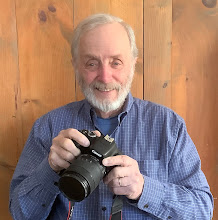It’s not just BIPOC minds and bodies that need to heal from White supremacy. White minds and bodies need to heal from the racist poison we were raised on.
While White people will never be able to fully comprehend the impact of multi-generational trauma that has been inflicted on BIPOC people, we have our own recovery work to do. White people have witnessed the people we love and trust express racist hatred. We have kept secret the beatings and lynching our parents and grandparents have perpetrated against other human beings. We have been conditioned to be racist to one degree or another, whether we admit it or not.
There has been a lot of discussion about BIPOC people internalizing racism and oppression. There is less talk about how White people have internalized our reciprocal role in this racist relationship. And it’s up to us to begin our own recovery and stop telling BIPOC people to “get over it.”
The first step in our recovery is recognizing the racism of our ancestors and how it has influenced us. Like recovery from addiction, this is very difficult and emotional work. It forces us to face our conflicting feelings of supremacy and guilt. It requires us to be not just intellectually cognizant of the effects of racism, but to feel them in our gut.
We must try to understand what it feels like to have your father lynched by a racist mob, your adolescent son murdered by a racist police officer, your whole extended family slaughtered by the United States Army, and your grandparents forced into internment camps because of their nationality. We must face the fact that our immediate ancestors exploited and dominated BIPOC people out of greed and racial supremacy.
Only then can White people begin to recover from our role in this inhumane and unforgiveable behavior. Only then can we truly separate ourselves from our ancestors’ racism and recover our own non-racist identity. Only then can we stop trying to prove we’re not racists and fully embrace BIPOC people as our equals.
And it’s not one-and-done. It’s a lifelong commitment to change. It’s creating a new persona that we choose for ourselves. Not one that we blindly inherited from our predecessors. And it doesn’t require us to all become activists. Only that we live our lives as we believe human beings should live, in defiance of the racism around us.
If we want to heal our society from the deadly disease of racism, we need to do our part. It’s our disease after all.
I'm just a gigolo...
-
OK. The truth be told, I guess I was a gigolo at one time.
I wasn't trying to be. But a woman I had sex with paid me for my time. It
started cuz I missed w...


No comments:
Post a Comment